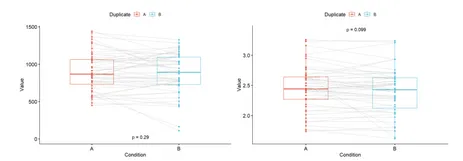Feasibility Study: Implementation of a wastewater surveillance system (WSS) for COVID-19 in Tashkent

Wastewater-based epidemiology has garnered interest as a monitoring tool to protect public health, especially since the pandemic. A feasibility study was initiated to detect and monitor the prevalence of COVID-19 in Tashkent, Uzbekistan was monitored through the establishment of a wastewater monitoring system (WSS). Five programmable, stationary, refrigerating autosamplers were stationed at a total of five influent points across three wastewater treatment plants.
Strategy: 24-hour composites were taken in duplicates, two times a week. Viral RNA was extracted and SARS-CoV-2 target genes N2 and E, as well as surrogate virus Pepper Mild Mottle Virus (PMMoV), were quantified through quantitative PCRs. Statistical analyses were conducted to determine the differences between the technical replicates and to analyze the trend of SARS-CoV-2 in Tashkent.
Preliminary results: Comparison of the replicates with respect to N2 and PMMOV showed no significant difference (p values of 0.1 and 0.29, respectively) between the duplicates and as a result, replicates were no longer sampled and extracted. A linear regression analysis was conducted between the wastewater data from each sampling site, and the 7-day incidence data from Tashkent. Almost no correlation was found between the datasets, with a maximum Rsquared value of 0.022. This can be attributed due to the end of the pandemic, as well as discontinuation of mandatory testing.
Feasibility: Technologically, the equipment was compatible with local infrastructure, and the existing skillset was enough for the tasks. The system requires a large capital for setup and has recurring costs for laboratory consumables. The material and consumable costs for processing a single batch of samples (extraction and qPCR of 5 composites) is calculated to be 11.13 cents per 1,000 Tashkent inhabitants. The operation is relatively simple to maintain and troubleshoot. Redesigning or altering the pipeline (i.e. targeting a different biomarker) requires technical expertise for the planning phase.
| Project leader | Dr. Christian Wurzbacher |
| Researcher | M.Sc. Mohammad Shehryaar Khan |
| Collaboration | Robert Koch Institute, The Sanitary Epidemiological Welfare And Public Health Committee Of The Republic of Uzbekistan (SANEPIDCOM) |
| Funding | Deutsche Gesellschaft für Internationale Zusammenarbeit (GIZ) |

